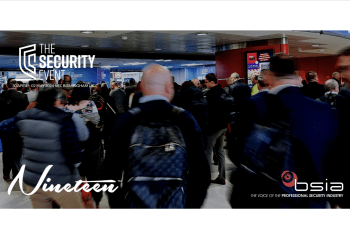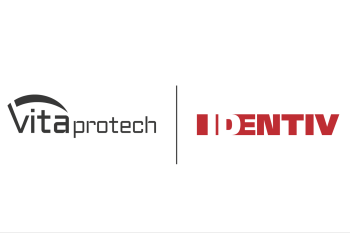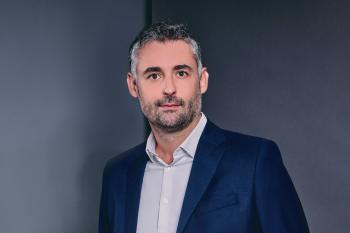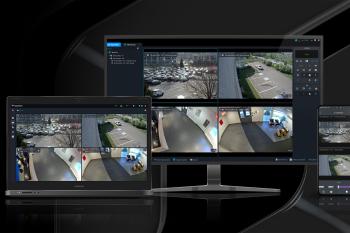QSD Ermittlungs- und Sicherheitsdienst: detectives in the logistics chain
30.07.2012 - QSD Ermittlungs- und Sicherheitsdienst: detectives in the logistics chain. Avoiding competitive disadvantages through damage, maintaining the highest standards of knowledge and qua...
QSD Ermittlungs- und Sicherheitsdienst: detectives in the logistics chain. Avoiding competitive disadvantages through damage, maintaining the highest standards of knowledge and quality of staff cover and preventing losses through shrinkage and crime – these are the aims of security measures and protection concepts in the field of logistics. The security officer has to take into consideration a large number of tasks and weaknesses resulting from the structural conditions and resultant vulnerable points. To achieve security it is worthwhile to employ external consultants and undercover investigators.
How do its structural conditions leave your company open to attack? What technical facilities are available on-site with regard to IT security and alarms for burglary, raids, fire and faults? Anyone who is responsible for the security of a logistics company must master a wide range of activities. Access must be regulated (including visitors and external companies). The personnel structure (own employees, employees from external companies, temporary workers, service personnel, qualification of personnel, personnel vetting, drug tests and training) must be also taken into account, as well as the company‘s operating procedures.
Features specific to the sector must also be considered – such as special hazard levels according to the types of goods transported and their routes. Even the competitive situation and defence against industrial espionage and sabotage can be of crucial relevance to security.
Statutory Control
In the law on control and transparency in businesses the government in some countries has established that the directors must provide evidence of a functioning risk management system. It has become necessary to submit a status report concerning the risks from future developments. The statutory requirements and obligations arising from the laws on industrial health and safety regulations, industrial relations charters, environmental protection and accident prevention regulations must also be complied with.
If the person responsible fails to observe these, he must expect severe sanctions. How good a security concept in logistics is – or can be – is demonstrated by its robustness in the day-to-day running of the company.
When damage occurs, any loopholes in the concept become glaringly obvious. But what if there are no clearly definable incidents? Normally, prevention is very difficult to measure. This is one of the reasons why companies are reluctant to invest in the field of security.
Potential disadvantages are more likely to be accepted than in other sectors. The logistics sector is especially prone to become the target of criminal elements and their desire to gain possession of the property of others, due to the places where goods are transferred, large numbers of consignments being transported, often over long distances, and complicated procedures.
Complete Documentation
It is very rare that vetting of personnel and drug tests are carried out when staff are appointed. Transparency, cleanliness and tidiness in the warehouse, or in the company as a whole, are especially important. An untidy and dirty warehouse is easy prey for criminals, whilst a wellrun warehouse provides few opportunities to „appropriate“ goods which have been concealed or placed in readiness. The better the traceability and documentation on individual operating procedures, including the movement of goods, the lower the quota of missing merchandise and „shrinkage“.
By having a good system for checking individual activities and procedures, employees are indirectly forced to work in a clean and responsible manner. Negligence or deliberate action soon becomes apparent, and is easier to trace or prove. Events and incidents should be recorded and documented in some sort of a „grid model“, which is constantly processed and evaluated.
The data should be stored in a safe place in the form of clear statistics which are accessible at all times. Possibilities of tampering, especially by IT officers or administrators must be ruled out (in order to ensure business independence and transparency, induction and commissioning should not be performed by one particular IT officer, four-eyes principle for processing operating procedures relevant to valuables or security).
In order to establish common features or correlations between the various incidents, there should be a coordinated investigation and evaluation of at least the following points:
- Location of crime or incident, perpetrator or group of perpetrators,
- article or group of goods, with delivery address, clerk, supplier or carrier, personal details of driver, customer,
- type or method of the crime, Itinerary of the carrier and supplier,
- type of packaging, other special features or characteristics of the goods, method of dispatch, type of order,
- traceability by means of IT, and complete documentation including data storage/backup.
External Consultants versus Blindness to Company Failings
When the same activity is performed over many years, there is often blindness to company failings. This does not mean that the person responsible has not, or has inadequately carried out his duties, but rather that a certain continuity in fulfilling tasks can partially obscure the view of essentials, or sources of danger which are gradually developing.
This is an entirely human phenomenon, which can be found in any company. However, this can be prevented, by having the desired and actual conditions assessed periodically with the support of an external consultant, who cooperates to provide an independent point of view.
In addition, synergy effects can be utilised, or the external consultant can bring to bear his wide experience in other fields.
Here, various situations can be investigated, new ideas to promote security can be established, and even the efficiency of some parts of the operating procedure may be improved.
Undercover Investigators
Recently, there have been cases of activity by foreign secret services through the infiltration of undercover industrial espionage agents. As in most cases no crime was committed or evidenced, prosecution by the police and the public prosecutor is made enormously difficult. As these are professional criminals who are adept at leaving no trace, any such cases that occur must be handled with great tact and sensitivity.
In the logistics sector the use of undercover private detectives has also proved successful in combating internal criminal activity, depending on its scope. However, only highly experienced and qualified security experts, who have the strength of character to be able to resist any form of corruption, are suitable for these highly sensitive and often dangerous countermeasures.
The investigation procedure is based on creating a false identity and background history. What the undercover investigator can expect to find, or whether the mission will be successful is something which even the most experienced expert cannot answer in advance. Any undercover work involves a certain degree of risk. As regards efficiency, owing to possible exposure, and as a safeguard, such measures should be well planned, thought through and thoroughly prepared.
Good cooperation with the police should also be ensured.
My many years of professional experience in this specialist field have shown that such undercover work is highly successful. The achievement of a precisely defined basic level of security should be the primary goal of any logistics centre. The security officer should work out these points in detail in cooperation with the management, and then implement them in practice.
Ultimately, it is pointless if the company is operating profitably, but the door is left wide open to criminals, and capital and assets „walk“. Undercover investigators can provide effective help if the basic structural security, organisational security measures, and the careful selection of personnel are insufficient to prevent criminal activity.
Contact:
Christian Thomeczek
QSD Ermittlungs- und Sicherheitsdienst,
Mössingen, Germany
Tel.: +49 7473 272 770
Fax: +49 7473 272 590
info@qsd-security.de
www.qsd-security.de









